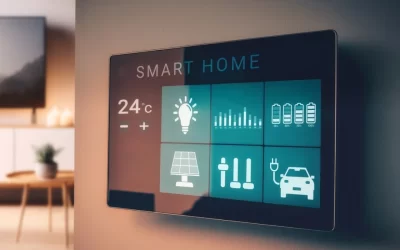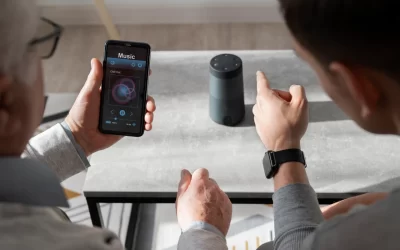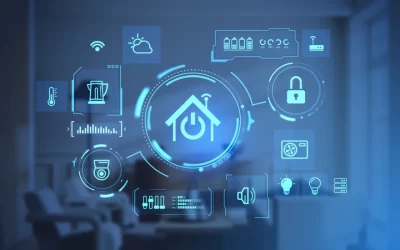Table of Contents:
- Introduction
- Understanding Smart Kitchen Appliances
- Benefits of Smart Kitchen Appliances
- Popular Smart Kitchen Appliances
- Integration with Smart Home Systems
- Challenges and Considerations
- Conclusion
1. Introduction
The kitchen has long been considered the heart of the home, and with the rise of smart technology, it’s becoming even more central to our lives. Smart kitchen appliances are revolutionizing the way we cook, eat, and interact with our food, ushering in a new era of convenience and efficiency. In this blog, we’ll explore the growing trend of smart kitchen appliances and the impact they’re having on cooking in the digital age.
2. Understanding Smart Kitchen Appliances
Smart kitchen appliances are devices equipped with connectivity features and advanced technology that allow them to be controlled remotely or programmed to perform specific functions. These appliances can range from smart ovens and refrigerators to coffee makers and sous vide machines. They often feature touchscreens, mobile app integration, and compatibility with voice assistants like Amazon Alexa or Google Assistant.
3. Benefits of Smart Kitchen Appliances
The proliferation of smart kitchen appliances offers a myriad of benefits for home cooks and food enthusiasts alike. Some of the key advantages include:
- Convenience: Smart appliances streamline cooking processes and make meal preparation more efficient.
- Precision: Many smart appliances offer precise temperature control and cooking presets, resulting in consistent and perfectly cooked meals.
- Connectivity: Smart appliances can be controlled remotely via mobile apps, allowing users to monitor cooking progress and adjust settings from anywhere.
- Customization: Smart appliances often feature customizable settings and personalized recommendations based on user preferences and dietary restrictions.
4. Popular Smart Kitchen Appliances
Several smart kitchen appliances have gained popularity in recent years, including:
- Smart refrigerators with built-in cameras and touchscreen displays that allow users to see what’s inside and track food inventory.
- Smart ovens and ranges with Wi-Fi connectivity and advanced cooking modes like convection baking and air frying.
- Smart coffee makers that can be programmed to brew coffee at specific times and customize brewing parameters such as temperature and strength.
- Smart sous vide machines that maintain precise water temperatures for sous vide cooking and can be controlled remotely via mobile apps.
5. Integration with Smart Home Systems
One of the most significant advantages of smart kitchen appliances is their integration with smart home systems. This allows users to create customized routines and automate tasks by connecting their appliances with other smart devices in their homes. For example, a smart oven can be programmed to preheat automatically when the user arrives home or to turn off after a certain amount of time to prevent overcooking.
6. Challenges and Considerations
Despite their many benefits, smart kitchen appliances also present challenges and considerations for consumers. These include:
- Cost: Smart appliances tend to be more expensive than their traditional counterparts, which may deter some consumers.
- Compatibility: Ensuring compatibility between different smart appliances and home automation systems can be challenging, especially with products from different manufacturers.
- Security: Smart appliances are connected to the internet, making them potentially vulnerable to hacking and cybersecurity threats. It’s essential for users to take steps to secure their devices and networks.
7. Conclusion
The rise of smart kitchen appliances is transforming the way we cook and interact with food, offering unprecedented levels of convenience, precision, and customization. From smart refrigerators that keep track of food inventory to sous vide machines that maintain precise cooking temperatures, these appliances are revolutionizing the kitchen and making cooking in the digital age more enjoyable and efficient than ever before. As technology continues to evolve, the possibilities for smart kitchen appliances are endless, promising a future where cooking is not just a necessity but a delightful and rewarding experience.






0 Comments